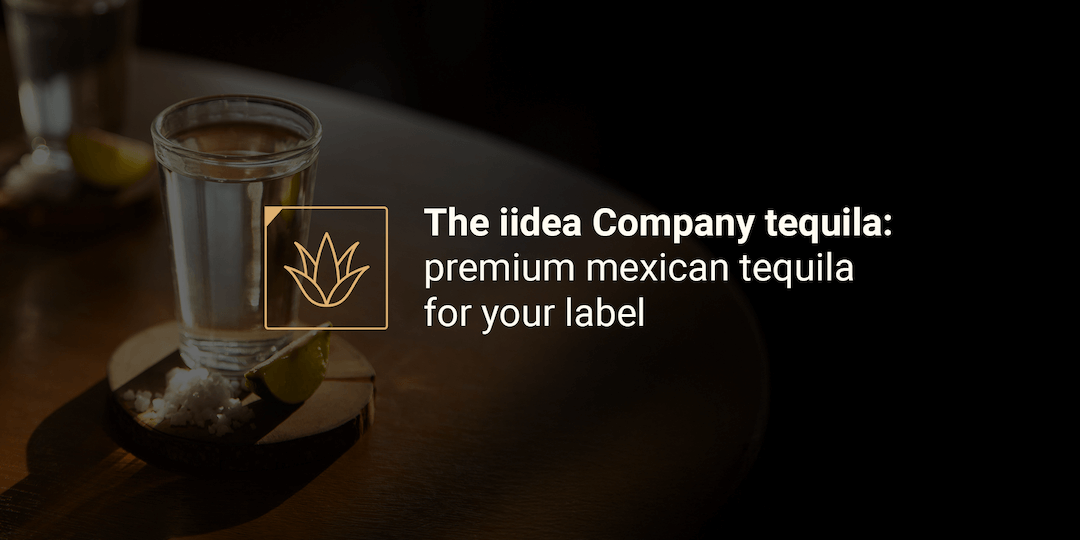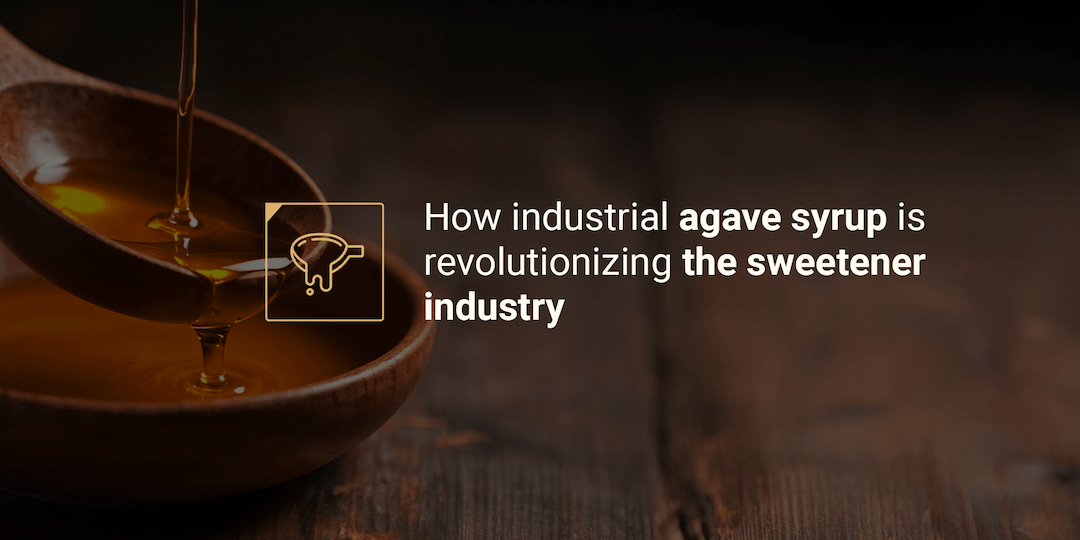Tequila supply chain: get in the industry without failing
The tequila industry is a thriving sector renowned for its rich heritage and global appeal.
As demand for premium tequila continues to grow, understanding the intricacies of the tequila supply chain becomes increasingly important.
From the cultivation of agave plants to the final distribution of the spirit, each stage plays a crucial role in ensuring the quality and consistency of the product.
To equip you with comprehensive insights and ensure your success in navigating the tequila industry, this article covers everything you need to know.
What do we mean by "bulk tequila supply chain"?
The tequila supply chain, or “cadena de suministro” in Spanish, is a complex network involving multiple stages, each contributing to the final product's quality and authenticity.
This chain begins with agave cultivation and continues through harvesting, processing, distillation, aging, bottling, and distribution.
Each stage requires meticulous attention to detail and adherence to regulatory standards, ensuring that the end product meets the high expectations of consumers and the stringent requirements of the Mexican government.

Fundamental aspects of the bulk tequila supply chain
1. Stages
A successful tequila supply chain is built on several critical stages and components, contributing to the final product's quality and distinctiveness.
Each stage of the tequila supply chain plays a vital role in ensuring the final product's quality and efficiency.
Understanding these is essential for anyone looking to enter the tequila industry and produce premium tequila.
- Agave cultivation: The journey starts with growing blue agave plants, primarily in the Mexican state of Jalisco. The quality of the agave plant is paramount, as it directly influences the flavor profile of the tequila. Cultivating agave requires a deep understanding of the soil, climate, and growth cycles. Blue agave plants typically take 7 to 10 years to mature, necessitating long-term planning and investment.
- Harvesting: Once mature, the agave plants are harvested by skilled jimadores who carefully remove the piñas (hearts of the agave). This process is labor-intensive and requires expertise to ensure that the piñas are harvested at the right time to maximize sugar content.
- Processing: The harvested piñas are then cooked to convert their complex carbohydrates into fermentable sugars. This can be done using traditional brick ovens or modern autoclaves. The cooked piñas are crushed to extract the agave juice, which is then ready for fermentation.
- Fermentation: The extracted juice is fermented in large vats, where yeast is added to convert the sugars into alcohol. This stage is critical as it sets the base flavor of the tequila.
- Distillation: The fermented liquid undergoes distillation, usually twice, to increase the alcohol content and purify the spirit. The result is a clear liquid known as silver or blanco tequila.
- Aging: Depending on the desired type of tequila, the distilled spirit may be aged in oak barrels. Aging can range from a few months to several years, with longer aging periods imparting deeper flavors and more complexity.
- Bottling: After aging, the tequila is filtered, sometimes diluted to the desired alcohol content, and then bottled. This stage also includes labeling, which must comply with regulatory standards, including the NOM number and CRT seal.
- Distribution: The final stage involves distributing the bottled tequila to domestic and international markets. Efficient logistics and a robust distribution network are essential to ensure that the product reaches consumers in optimal condition.

2. Quality control measures
Quality control is a cornerstone of the tequila supply chain, ensuring that each bottle meets the high standards expected by consumers and regulatory bodies.
From the agave fields to the final product, rigorous quality control measures are implemented to maintain consistency and excellence.
Ensuring consistency and quality begins with the careful selection of agave plants.
This selection process is crucial because the maturity of the agave affects the sugar content and, consequently, the flavor profile of the tequila.
Once the agave is harvested, it undergoes cooking, fermentation, distillation, and aging.
Each of these stages requires meticulous attention to detail.

3. Certification and standards
Certifications and standards play a vital role in maintaining quality across the tequila industry.
The Norma Oficial Mexicana (NOM) sets the official standards for tequila production, specifying everything from the types of agave that can be used to the permissible production methods.
Compliance with NOM standards is mandatory for all tequila producers.
The Consejo Regulador del Tequila (CRT) is responsible for enforcing these standards. Tequila producers must register with the CRT and obtain certification to verify that their products meet all NOM requirements.
This certification process involves regular inspections and audits to ensure ongoing compliance. The CRT seal on a bottle of tequila is a guarantee of its authenticity and quality.
By adhering to the necessary certifications, producers can ensure that their tequila consistently meets high standards.
4. Logistics and distribution
Logistics and distribution in the tequila industry present unique challenges that require careful planning and execution.
One of the primary challenges is ensuring that the tequila maintains its quality during transportation.
Tequila is sensitive to temperature fluctuations and exposure to light, which can alter its flavor and integrity. Therefore, maintaining optimal conditions throughout the supply chain is essential.
To address these challenges, implementing efficient transportation and storage strategies is crucial.
Temperature-controlled shipping is often necessary to protect the tequila from extreme temperatures.
Insulated containers and refrigerated transport can help maintain a stable environment, preserving the tequila's quality during transit.
Proper storage is equally important. Warehouses should be equipped with climate control systems to regulate temperature and humidity levels.
Additionally, storing tequila in a manner that minimizes exposure to light and vibration can help maintain its integrity.

5. The role of technology
In recent years, technological innovations have revolutionized various aspects of the tequila supply chain, from agave cultivation to distribution.
These advancements play a crucial role in enhancing efficiency, ensuring quality, and meeting consumer demand.
Technological advancements have significantly improved agave cultivation, a critical first step in the tequila production process.
Modern techniques such as precision agriculture allow producers to monitor and optimize soil conditions, water usage, and agave growth cycles.
Technology enables real-time monitoring of production processes, ensuring adherence to strict standards such as those set by the Norma Oficial Mexicana (NOM).
Automated systems can detect deviations in fermentation, distillation, and aging, allowing for prompt adjustments to maintain product consistency and quality.
Logistics in the tequila industry have also benefited from technological advancements.
Advanced tracking and tracing systems streamline inventory management, transportation scheduling, and warehousing operations.
These systems optimize routes, reduce transit times, and minimize the risk of product loss or damage, thereby improving overall supply chain efficiency.
Why partnering with experts is crucial
Partnering with experienced industry players is essential for navigating the complexities of the tequila supply chain effectively.
Experienced tequila suppliers bring in-depth knowledge and insights gained from years of operating within the industry.
They understand the nuances of tequila production, distribution, and exportation, which are crucial for maintaining quality and meeting regulatory requirements.
Their established relationships with agave growers, distilleries, and logistics providers also ensure access to reliable resources and streamlined processes.
The tequila supply chain presents various challenges, from fluctuating agave prices to intricate export regulations.
Expertise in navigating these challenges can mitigate risks and optimize operations.
Experienced partners like Dialce possess the expertise to anticipate market trends, manage inventory effectively, and implement sustainable practices that enhance supply chain resilience.
Dialce: your trusted partner for a seamless tequila supply chain
At Dialce, we specialize in providing comprehensive supply chain solutions tailored to the tequila industry.
Our commitment to quality and efficiency is evident in every aspect of our operations, from sourcing the finest agave to ensuring meticulous production standards and seamless distribution.
With years of experience and a deep-rooted understanding of the tequila supply chain, Dialce offers unparalleled expertise.
We navigate the complexities of agave cultivation, production, aging, and logistics with precision, ensuring that our partners receive consistent, high-quality tequila products.
Partnering with Dialce means gaining access to state-of-the-art facilities, dedicated industry professionals, and a robust network of suppliers and distributors.
Dialce's tequila distilleries combine traditional craftsmanship and modern innovation to produce exceptional tequila, ensuring your brand stands out in the market.
Whether you're looking to source bulk tequila, develop private label brands, or expand your distribution channels, Dialce provides tailored solutions to meet your business objectives.
Elevate your bulk tequila supply chain with Dialce's expertise
A robust supply chain is vital to success in the tequila industry. From cultivating high-quality agave to ensuring precise distillation and efficient distribution, each link in the chain must be managed with expertise and precision.
Businesses looking to enter the tequila market or enhance their current operations should leverage the extensive knowledge and resources available.
By partnering with industry experts like Dialce, you can navigate the complexities of the tequila supply chain with confidence.
Dialce offers unparalleled experience and commitment to quality, providing the support needed to optimize every aspect of your tequila business.
Don’t leave your success to chance; ensure a smooth and efficient operation by aligning with a partner who understands the nuances of the tequila industry.
To learn more about the bulk tequila industry, read: Bulk tequila: purchasing process, prices and recommendations.






